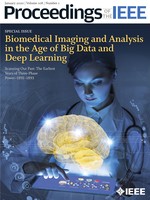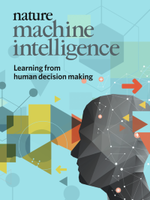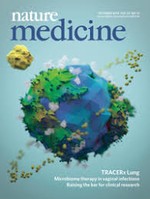About Us
The Lab for AI in Medicine at TU Munich develops algorithms and models to improve medicine for patients and healthcare professionals.
Our aim is to develop artificial intelligence (AI) and machine learning (ML) techniques for the analysis and interpretation of biomedical data. The group focuses on pursuing blue-sky research, including:
- AI for the early detection, prediction and diagnosis of diseases
- AI for personalised interventions and therapies
- AI for the identification of new biomarkers and targets for therapy
- Safe, robust and interpretable AI approaches
- Privacy-preserving AI approaches
We have particularly strong interest in the application of imaging and computing technology to improve the understanding brain development (in-utero and ex-utero), to improve the diagnosis and stratification of patients with dementia, stroke and traumatic brain injury as well as for the comprehensive diagnosis and management of patients with cardiovascular disease and cancer.
News
New Module IN2409: Inverse Problems in Medical Imaging
Recent Publications
Teaching
MSc Thesis: Large Language Models in Medicine
Description: Large Language Models (LLMs) have shown exceptional capabilities in understanding and generating human-like text. In the medical field, these models hold the potential to revolutionize patient care, medical research, and healthcare administration.
MSc Thesis: Leveraging Differential Privacy to Learn General and Robust Deep Learning Models
Description Deep learning aims at learning general representations of data allowing for downstream tasks such as classification, regression or generation of new data. In practice, however, there are no formal guarantees to what a model learns, resulting in unwanted memorisation of input data and leaking of private information.
MSc Thesis: Outperforming CNNs and Transformers on Medical Imaging Tasks with Equivariant Networks
Description Equivariant convolutions are a novel approach that incorporate additional geometric properties of the input domain during the convolution process (i.e. symmetry properties such as rotations and reflections) [1]. This additional inductive bias allows the model to learn more robust and general features from less data, rendering them highly promising for application in the medical domain.
MSc Thesis: Privacy-Preserving Synthetic Time Series Data of Electronic Health Records
Description Anonymizing data means removing or replacing any identifying information from a dataset, such as names or addresses. The aim of anonymization is to protect the privacy of individuals whose data is being collected and processed.
Master-Seminar: Multi-modal AI for Medicine (IN2107)
This year’s seminar will look at aspects of multi-modal machine learning in medicine and healthcare, focusing on: Vision language models (VLMs) for medical and healthcare applications Generic multi-modal AI models utilising imaging data, clinical reports, lab test results, electronic health records, and genomics Foundation models for multi-modal medicine Objectives: At the end of the module students should have:
Practical Course: Applied Deep Learning in Medicine
In this course students are given the chance to apply their abilities and knowledge in deep learning to real-world medical data. Students will be assigned a medical dataset and in close consultation with medical doctors create a project plan.
Master Thesis: Deep Learning for Bone Tumor Detection and Segmentation: 2D vs 3D
Abstract: The detection and segmentation of bone tumors using magnetic resonance imaging (MRI) have crucial implications for clinical diagnosis and treatment planning. With the advent of deep learning techniques, there’s a growing interest in leveraging these methods to analyze MRI bone tumor images.
MSc Thesis: Diffusion-based Topology-preserving Medical Image Segmentation
This project can be hosted in Munich and/or Zurich @Biomedical Image Analysis & Machine Learning Group, University of Zurich. Background: Topology is vital in medical image segmentation, emphasizing anatomically correct structures & removing incorrect ones.
IDP/Thesis: Physics-based deep learning for hyperspectral brain surgery imaging
Hyperspectral imaging (HSI) is an optical technique that processes the electromagnetic spectrum at a multitude of monochromatic, adjacent frequency bands. The wide-bandwidth spectral signature of a target object’s reflectance allows fingerprinting its physical, biochemical, and physiological properties.
IDP: iOS app for wearable health data management
Description In an era where technology has seamlessly integrated with our day-to-day lives, health and fitness tracking has seen a revolutionary change. Gone are the days when we passively absorbed health information.
MSc Thesis: Contrastive Learning and Generative Models for Cross-Domain Transfer Learning
In this Master thesis we aim to approach the cross-domain transfer learning problem with two powerful methods that help us to bridge the domain gap between source and target domain: contrastive learning [1] and generative models.
Vacancies
We are recruiting team members who would like to join us for a MSc, BSc or guided research/interdisciplinary project on an ongoing basis! Please look under Teaching to find out which projects we are currently offering. If you’d like to join us for one of these projects, please get in touch by contacting the appropriate staff member via e-mail and attach a motivation letter, transcript of academic records and CV.
Current vacancies
Currently no positions are available.
Internships
Unfortunately we cannot host any external students for internships.





